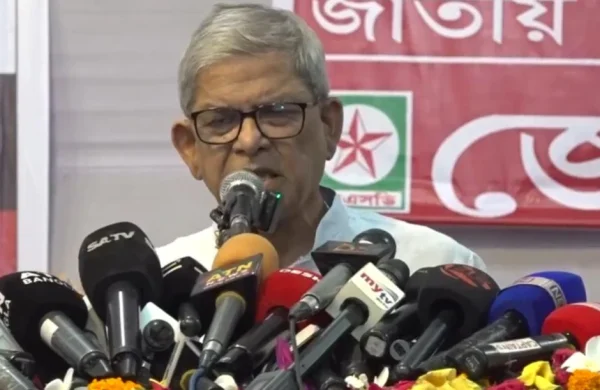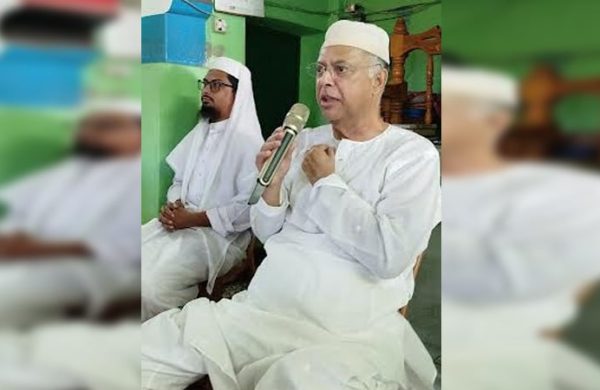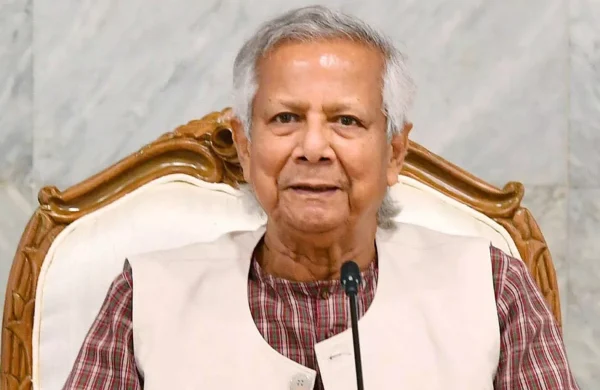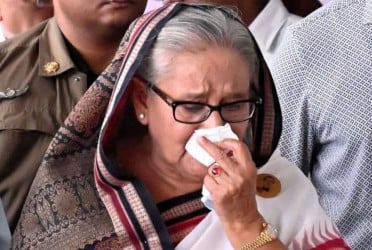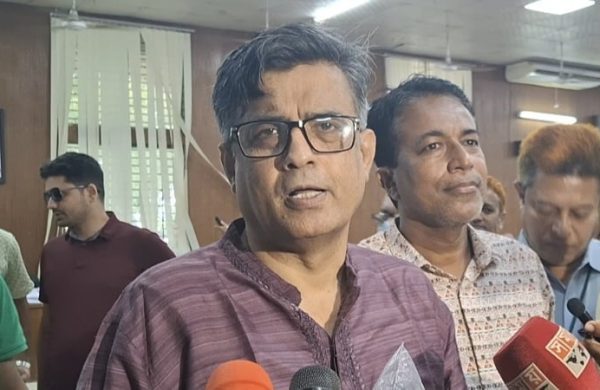How 5 Islamic banks will be merged?
- Update Time : Wednesday, October 1, 2025
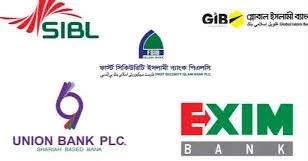
TDS Desk:
A roadmap has been prepared for the merger of five Islamic banks that are on the path to integration. The entire process will be completed step by step following the roadmap. A project office will also be set up at the Sena Kalyan Bhaban in Motijheel.
The merger process of the five banks will be carried out from this project office. After the process is completed, these five banks will combine to launch a new government-owned bank named United Islami Bank.
This information comes from sources at Bangladesh Bank.
According to the Bangladesh Bank roadmap, the proposal to merge the five banks and form a new bank could be presented for final approval by the government at a meeting of the Advisory Council of the caretaker government at the beginning of October.
After the council’s approval, Bangladesh Bank will issue a gazette notification regarding the merger. Then the integration process will begin step by step.
The five banks selected for the merger initiative by Bangladesh Bank are: First Security Islami Bank, Social Islami Bank, Global Islami Bank, Union Bank, and EXIM Bank.
Among these, First Security Islami Bank, Union Bank, Global Islami Bank, and Social Islami Bank were controlled by the S Alam Group. EXIM Bank was under the control of Nassa Group chairman Nazrul Islam Majumder.
All of them were closely associated with former Prime Minister Sheikh Hasina.
Funds from depositors were allegedly taken from these banks through various irregular loans, much of which has not been recovered.
According to concerned individuals, a significant portion of these funds has been transferred abroad.
Experts say that during the merger, the interests of small depositors must be safeguarded first.
According to them, many banks are unwilling to merge, and some may even go to court over this matter. Therefore, Bangladesh Bank must proceed cautiously, taking all potential obstacles into account, to protect depositors’ interests and avoid negative effects on the banking sector.
They stressed that the process must also ensure that the merger is not disrupted midway.
HOW THE MERGER WILL BE COMPLETED
Sources associated with Bangladesh Bank say the liabilities, assets, and staff of the five banks will be combined. Later, United Islami Bank will take over these combined resources.
The government will provide a major portion of the new bank’s capital. The board of directors will include government officials as well as experienced individuals from the banking sector.
New appointments will be made for an experienced managing director, chief financial officer, and chief technology officer. Skilled officials from Bangladesh Bank will also be posted to the new bank’s project office.
Before this, the central bank will appoint administrators to the five banks. The administrators will be officials at the executive director and director levels of the central bank. They will oversee the managing directors of the banks and handle daily operations.
After appointing the administrators, the banks’ boards of directors will be dissolved.
Multiple central bank officials involved in the merger said the administrator team, along with Bangladesh Bank officers, will integrate the deposit, loan, and technology divisions of the five banks.
Human resources departments will also be merged after reviewing the staff. Later, these will be taken over by United Islami Bank. Once the takeover begins, the names and signboards of the five banks will gradually be changed.
HOW CAPITAL AND LIABILITIES WILL BE MANAGED
Sources say the five banks already face significant capital shortfalls. The new bank’s capital will be Tk 350 billion (35,000 crore) of which the government will provide Tk 200 billion (20,000 crore).
Additionally, Tk 75 billion (7,500 crore) will be converted into shares from the Bangladesh Bank deposit insurance fund, which was created using contributions from banks and financial institutions.
The remaining Tk 75 billion (7,500 crore) will be converted from institutional deposits of the banks.
According to Bangladesh Bank, the combined deposits of the five banks fell to Tk 1.36 trillion (136,546 crore) in May. However, the outstanding loan balance has been steadily increasing. In May, the combined loan balance of these banks stood at Tk 1.95 trillion (195,413 crore,) up from nearly Tk 1.94 trillion (193,855 crore) in March.
The combined non-performing loans (NPLs) of the five banks total approximately Tk 1.47 trillion (1,47,000 crore,) about 77 per cent of their total loan disbursements.
This high level of NPLs has created a shortfall of Tk 745 billion (74,501 crore) in the banks’ security reserves.
Union Bank has the highest percentage of NPLs at 98 per cent, followed by First Security Islami Bank at 96 per cent, Global Islami Bank at 95 per cent, Social Islami Bank at 62 per cent, and EXIM Bank at 48 per cent.
To repay depositors, EXIM Bank has taken a special loan of Tk 85 billion (8,500 crore) from the central bank.
Additionally, First Security Islami Bank borrowed Tk 70 billion (7,050 crore,) SIBL Tk 67 billion (6,675 crore,) Global Islami Tk 23 billion (2,295 crore,) and Union Bank Tk 24 billion (2,400 crore).
It is reported that there are plans to transfer the banks’ large NPLs to asset management companies, although the legal framework for such companies has not yet been enacted.
In the meantime, the banks are trying to recover the loans independently, and this process will continue.
GOVERNANCE AND OVERSIGHT
To implement the merger of the five Shariah-based banks, the government has formed an eight-member working committee, with Md Kabir Ahmad, deputy governor of Bangladesh Bank, has been appointed as the convener.
The committee is reviewing whether there are any legal obstacles to the merger process.
Former chief economist of Bangladesh Bank, Mostafa K Mujeri, told Journalists that some may go to court to block the process. Therefore, the merger must proceed cautiously, following proper procedures.
He raised some critical questions: how can Tk 350 billion in capital manage Tk 1.5 trillion in NPLs? Besides, none of those responsible for these banks have been punished.
He insisted that the interests of small depositors must be prioritised.
According to him, ignoring these issues could lead to setbacks and even bigger problems in the future. Hence, completing the merger according to the proper process is essential.




